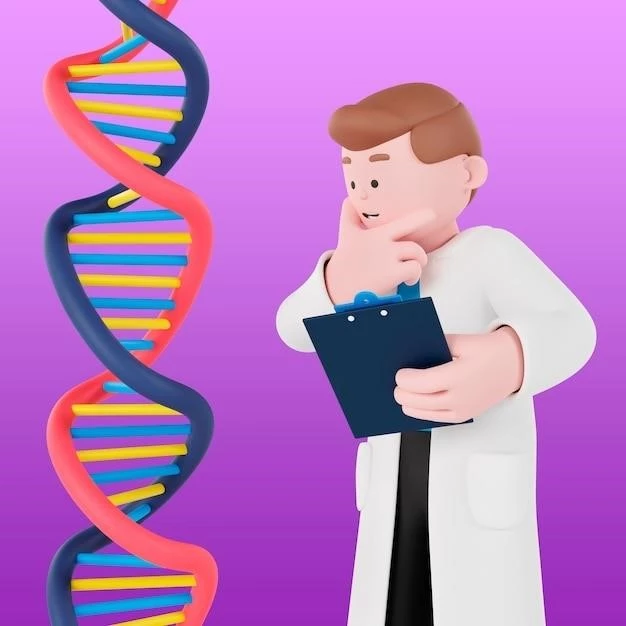Overview of Bardet-Biedl Syndrome
Bardet-Biedl syndrome is a rare genetic disorder that affects multiple body systems.
Definition and Background
Bardet-Biedl syndrome is a rare, complex genetic disorder. It is characterized by obesity, vision loss, kidney abnormalities, and other health issues. The syndrome was first described by doctors Georges Bardet and Artur Biedl in the early 20th century. It affects males and females of all ethnic backgrounds. BBS is caused by mutations in various genes related to cilia function, impacting different body systems.
Genetics of Bardet-Biedl Syndrome Type 3
Bardet-Biedl Syndrome Type 3 is caused by mutations in the gene BBS3, also known as ARL6.
Gene Mutation
The gene mutation implicated in Bardet-Biedl Syndrome Type 3 is BBS3, also known as ARL6. This mutation disrupts the normal functioning of cilia, leading to the various symptoms associated with the syndrome. ARL6 plays a crucial role in intracellular trafficking processes and ciliogenesis. Understanding the specific genetic mutations involved in BBS3 is essential for accurate diagnosis and potential targeted treatments.
Symptoms and Clinical Manifestations of Bardet-Biedl Syndrome
Bardet-Biedl Syndrome presents with a spectrum of symptoms, including obesity, retinal degeneration, and kidney abnormalities.
Physical Symptoms
Individuals with Bardet-Biedl Syndrome may experience a range of physical symptoms, such as obesity, rod-cone dystrophy leading to vision loss, polydactyly (extra fingers or toes), kidney abnormalities, hypogonadism, learning difficulties, and speech delays. These diverse physical manifestations highlight the multisystem nature of the syndrome and the need for comprehensive medical management.
Diagnosis and Testing for Bardet-Biedl Syndrome Type 3
Diagnosing Bardet-Biedl Syndrome Type 3 involves genetic testing to identify mutations in the BBS3 gene.
Diagnostic Procedures
Diagnostic procedures for Bardet-Biedl Syndrome Type 3 include molecular genetic testing to identify mutations in the BBS3 gene. Additionally, clinical evaluations may encompass vision tests, kidney function assessments, hormonal studies, and monitoring for potential complications associated with the syndrome. A multidisciplinary approach involving medical genetics specialists, ophthalmologists, nephrologists, and other healthcare professionals is crucial for accurate diagnosis and management.
Management and Treatment Options for Bardet-Biedl Syndrome
Management of Bardet-Biedl Syndrome involves a multidisciplinary approach focusing on symptom control and supportive care.
Treatment Approaches
Treatment for Bardet-Biedl Syndrome typically involves symptom management and supportive care. This may include interventions to address obesity, visual impairment, renal issues, and other complications associated with the syndrome. Regular monitoring by healthcare providers, including specialists in ophthalmology, nephrology, endocrinology, and genetics, is essential to provide comprehensive care tailored to individual needs. Research into potential targeted therapies continues to advance the treatment options available for individuals with Bardet-Biedl Syndrome.
Research Advances in Bardet-Biedl Syndrome Type 3
Investigations into Bardet-Biedl Syndrome Type 3 are continually expanding our understanding of the genetic mechanisms.
Recent Discoveries
Recent discoveries in Bardet-Biedl Syndrome Type 3 research have unveiled novel insights into the underlying genetic factors contributing to disease development. Studies have identified potential therapeutic targets and pathways that may inform future treatment strategies. Additionally, advancements in gene editing technologies offer promising avenues for precision medicine approaches tailored to the specific genetic mutations present in individuals with Bardet-Biedl Syndrome Type 3.
Complications Associated with Bardet-Biedl Syndrome
Bardet-Biedl Syndrome can lead to various health risks and complications affecting different body systems.
Health Risks
Individuals with Bardet-Biedl Syndrome face a range of health risks, including obesity-related complications, vision loss leading to blindness, chronic kidney disease, insulin resistance, diabetes, and reproductive issues. These health risks require ongoing monitoring and management to mitigate potential complications and improve the quality of life for individuals affected by Bardet-Biedl Syndrome.

Quality of Life and Support for Individuals with Bardet-Biedl Syndrome
Ensuring a high quality of life for individuals with Bardet-Biedl Syndrome involves comprehensive medical care and emotional support.
Supportive Care
Supportive care for individuals with Bardet-Biedl Syndrome encompasses multidisciplinary interventions, including nutritional counseling, vision rehabilitation services, kidney monitoring, hormone replacement therapy, and educational support for learning difficulties. Psychosocial support and community resources play a vital role in addressing the emotional and social challenges that individuals with Bardet-Biedl Syndrome and their families may encounter. A holistic approach to care enhances the overall well-being and quality of life for those living with this complex genetic disorder.
